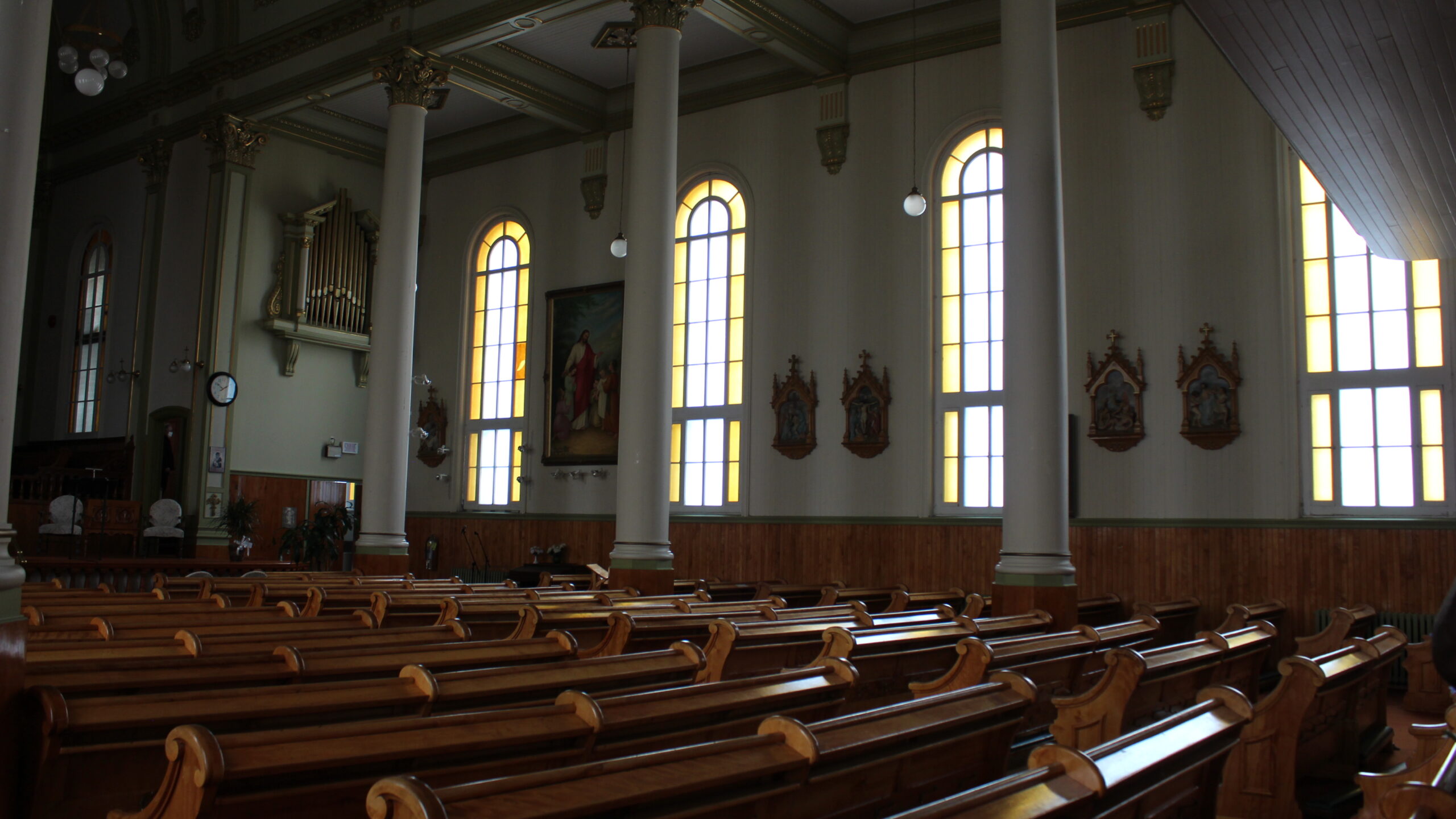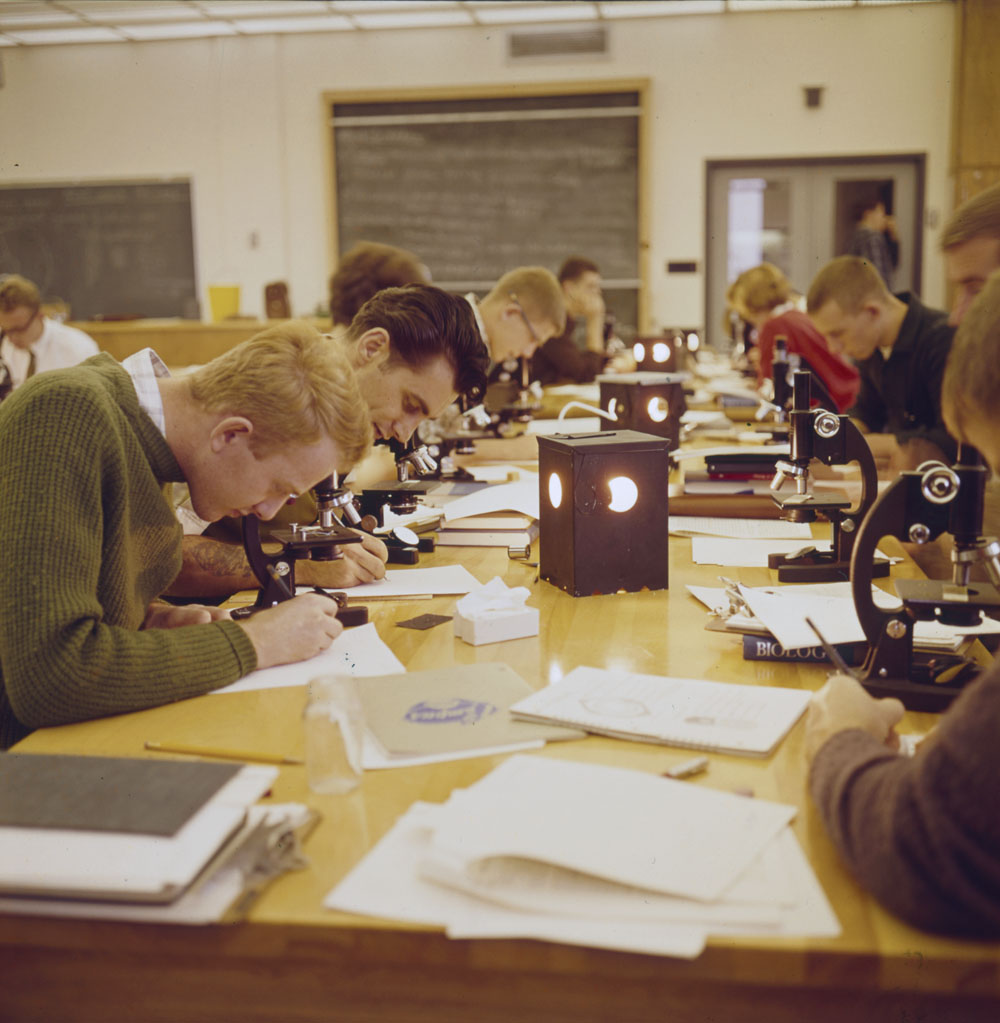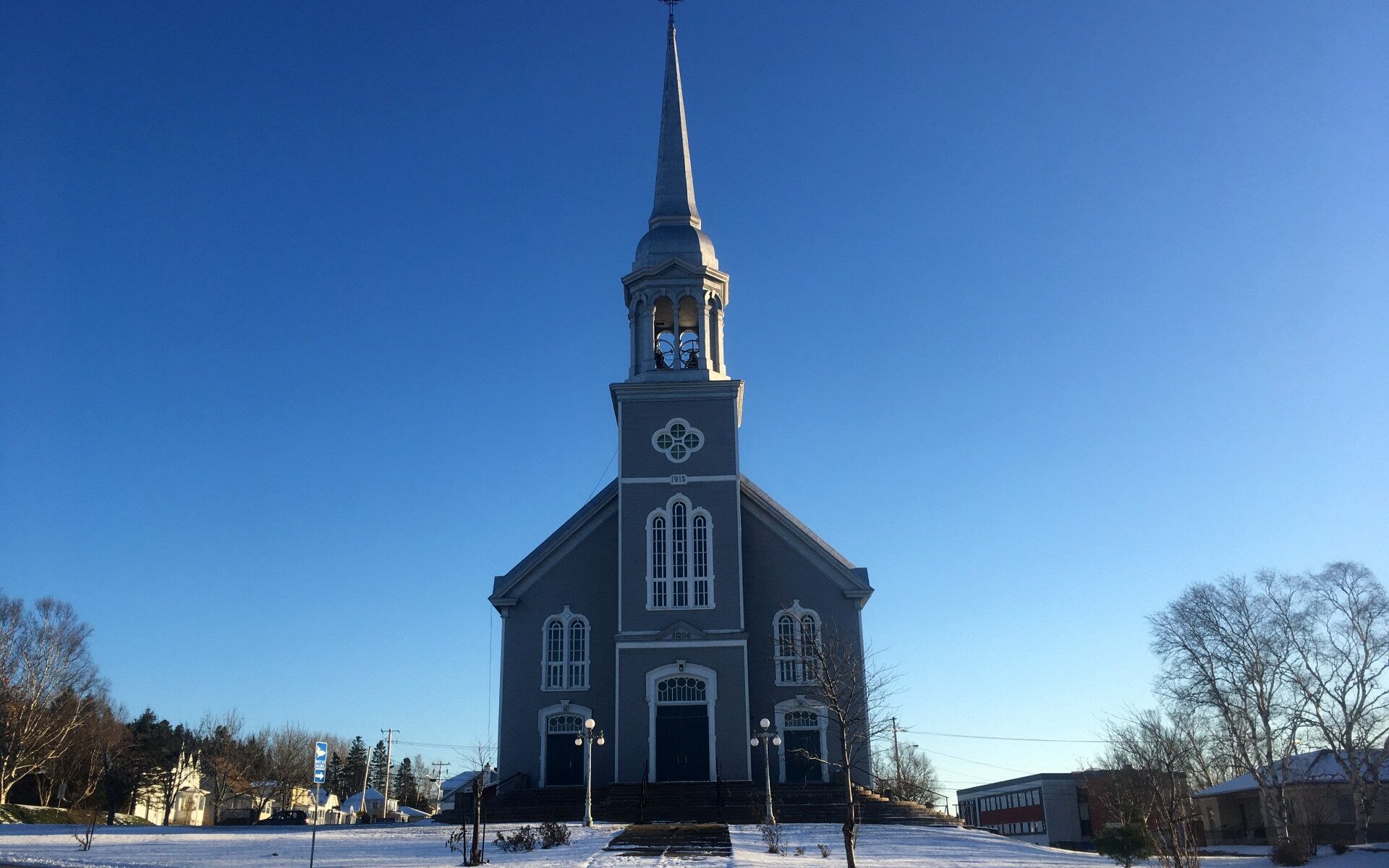Quebec’s weakening Catholic adherence

“In Canada we notice that there is a decline in practice, a decline in recruiting.”
— Ignace Ndongala
Adjunct professor at the Institute of Religious Studies at the University of Montreal
Slowly but surely, Christian denominations are fading out in Canada. People are distancing themselves from church, they go to mass less or not at all, “until at one point [they] decide not to baptise their kids, they don’t get married religiously,” said Martin Meunier, professor of sociology of religion at the School of Sociological and Anthropological Studies at the University of Ottawa.
In Quebec, only about 10 per cent of couples who are living together long term choose to be married in a church, said Jean-Paul Durocher, archbishop of the Gatineau diocese.
Meunier explained that this gradual abandonment of religious practice is slowly leading to a generation of Canadians without religion.
Before the 1990s, “each parish had a presbytery, had people that worked in the presbytery, each church was autonomous, there were a lot of people,” he said.
This is a sharp contrast from what is going on today. “There’s one council for five parishes, there’s one or two people working for five [parishes],” Meunier said. “We’re no longer rolling on gold.”
This isn’t limited parishes – it’s also changing the fabric of Canadian society.
“We’re looking at some of our other social institutions disengaging from more explicitly religious and specifically Christian frameworks for things like medical assistance and dying, certainly abortion, access to reproductive technologies and so on,” said Lori Beaman, professor and Canada Research Chair of Religious Diversity and Social Change at the University of Ottawa.
This trend manifests itself differently across the country, however. Canada being a country of immigration, there have been about six to seven million new migrants in the past 20 years, Meunier explained. But the majority of them chose to settle in English-speaking provinces – not in Quebec or in the Atlantic provinces.
As a result, provinces like Ontario are becoming a lot more populated and experience significant socio-demographic changes, the sociologist said. And populations that go through a lot of change tend to experience a lot of changes in religious adherence, whereas those that are more stable will observe a slower, more constant secular push.
“Quebec’s case is very particular,” in this instance, Meunier said. With less immigration than the rest of the country, the province is not getting younger people to replace its aging population. This coupled with a steady decline in religious adherence leads to a gap in younger generations that are religious.

How did the Roman Catholic Church loose its grip on Canadian society?
There are both historical and cultural answers to this question.

Hints of decline date back to the 1950s, when scientific reasoning became more popular than religion to explain things, said Gatineau archbishop Jean-Paul Durocher.
Science students at the University of Ottawa in 1961.
Photo © Library and Archives Canada
At that same time, Canada’s religious landscape – which had been mostly homogenous until then – started to diversify with the rise in immigration. “For the longest time, if you were a Quebecker you were [probably] a Catholic,” noted Durocher. But Christianity started losing some of its monopoly when newcomers of different faiths came in the country.
In B.C. for example, the high rates of non-religious people can be attributed to some extent to the fact that it has a large population of East Asian migrants, who are not typically very religious.
The Quiet Revolution also played a large role in Quebeckers moving away from religion. As the Quebec Liberal Party gained control over public institutions, the Catholic church lost a lot of power.
“The Catholic Church had built its pastoral life around institutions – schools, health care, even providing support for those in need,” explained Ignace Ndongala, an adjunct professor at the Institute of Religious Studies at the University of Montreal. “When the state decided that it would take over these spheres of society, that impacted Christians’ engagement even more. It led to a decrease in religious practice.”
The rapid expansion of urban areas accentuated this detachment. “With urbanization and industrialization, there’s also a specialization of competences – we see a new mindset that’s focused on individual autonomy,” said Ndongala. “Worshippers who used to think of a priest’s authority as total now scrutinize this authority a lot more,” he said.
With less believers also comes less priests. See also, “A shortage of local priests”
Top photo © Émilie Warren

